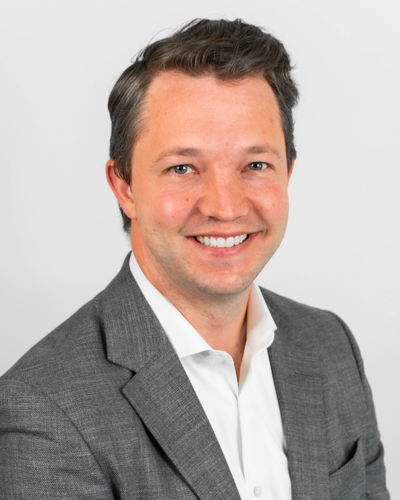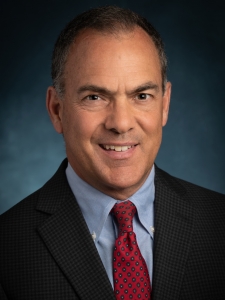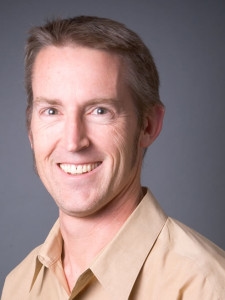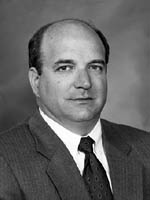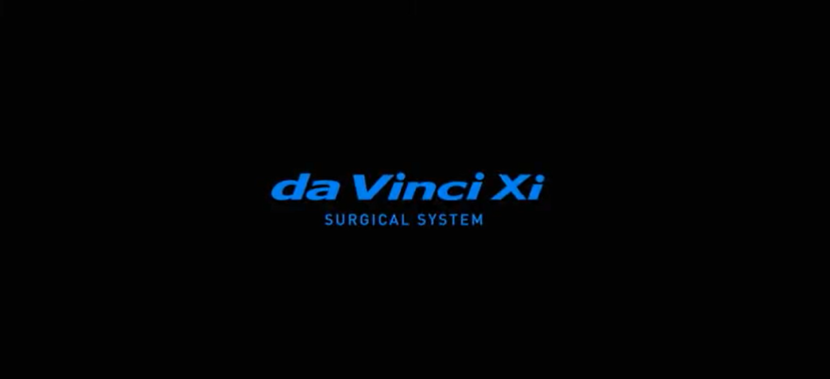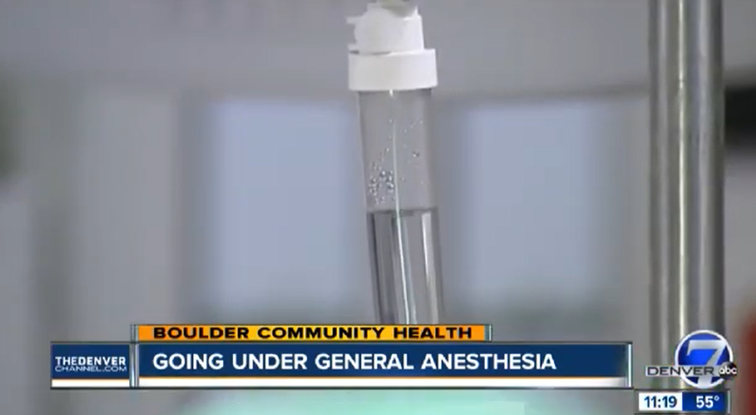Before Your Surgery
Making Your Surgical Experience as Comfortable and Positive as Possible
- Pre-Surgery Update
- Preparing for Surgery
- Surgical Site Infection Prevention
- Eating and Drinking Before Surgery
- Commonly Asked Questions About Your Surgery Stay
- Surprise Billing — Know Your Rights
- BCH Supplement to Out-Of-Network Disclosures
- Consent for Surgery and Patient Rights
Pre-surgery update
The surgery time given to you by your doctor’s office may not have included the time needed to prepare you for your surgery. As a result, your arrival time may have been adjusted by the Pre-Anesthesia Testing (PAT) nurse during your pre-admission phone call. Please note that emergency surgeries can impact our daily schedule. Should your surgery be delayed, we will keep you informed. On the day of your surgery, you may have one adult visitor accompany you.
When you arrive at Foothills Hospital (4747 Arapahoe Avenue), parking is available in the parking structure or in the surface parking lot. Next, please proceed to the pre-operative suite on the second floor where a nurse will prepare you for your surgery. Your surgeon and anesthesiologist will meet with you prior to your surgery to address questions.
When it is time for your surgery, an operating room nurse will escort you to the room. Your visitor will be escorted to the surgery waiting area. After your surgery, you will spend approximately one hour in our Post-Anesthesia Care Unit (PACU). Your surgeon or a member of his/her team will provide an update to your visitor in the waiting area or by phone once you are in the PACU. If you need to stay in PACU more than one hour, we will keep your family informed.
We are committed to the privacy of all our patients. Therefore, only under rare circumstances will your visitor be able to see you in the PACU. If you are going home the same day, you will be transferred to our Pre/Post Unit after leaving the PACU. If you will be staying in the hospital overnight, you will be transferred to your hospital room. In either case, one adult visitor will be able to join you.
Preparing for surgery
Pre-Registration
Before your surgery, you can update personal, medical and insurance information through the MyBCH portal. Instructions on how to access this portal can be found at bch.org/mybch. The pre-registration department will also confirm this information is complete and will call you if more information is needed.
Pre-Anesthesia Testing (PAT) Phone Call
Before your surgery you will get a phone call from Pre-Anesthesia Testing (PAT). If you do not receive this call 72 hours before your surgery, please call: 303-415-8128.
This phone interview will take between 20 and 30 minutes. The PAT nurse will review your health information and the medications you take. Please have your list of medications ready for your interview.
A hospital pharmacist may contact you by phone before your surgery to talk about your medication list.
Tests
You will be instructed if any tests are needed.
Medications
Be sure to let your surgeon and your nurse know if you are taking any blood thinners or antiinflammatory drugs like aspirin, ibuprofen, Relafen, Celebrex, Coumadin, heparin, etc. If you are not sure about the types of medications you are on, please be sure to ask.
Important notes
- If you get a cold, sore throat, or fever before your surgery, let your surgeon’s office know as soon as possible.
- You must have someone accompany you home after your surgery.
- For your safety, you should have someone stay with you for the first 24 hours after surgery.
For more information, please talk to your surgeon or nurse.
Surgical site infection prevention
Boulder Community Health takes prevention of surgical site infections seriously. We have a standardized group of things we do that will help prevent infection.
How can you and your loved ones prevent surgical site infections?
- Before your surgery, discuss other health problems, such as diabetes, with your provider. Some health problems can affect your surgery and your recovery.
- Quit smoking. Patients who smoke are two times more likely to have problems healing and develop infections at the surgical site.
-
Shower every day for the three days leading up to surgery with a plain
or antimicrobial soap.
- Lather soap over your entire body including your face and rinse. Wash your hair the day before your surgery.
- Dry off with a clean towel.
- It is very important to avoid shaving near your surgical site for three days before your surgery. Shaving with a razor can irritate your skin and make it easier to get an infection.
- Do not use hair removal products.
-
Brush your teeth twice every day; any toothpaste is okay.
What should I expect on the day of surgery before I go to the surgeryroom?
- Let the nurse know if you have any skin breakdown or skin issues.
- Iodine swabs will be applied twice to the inside of each of your nostrils. Let your provider know ahead of time if you are allergic to iodine.
- Clippers may be used for hair removal (not a razor).
- Your surgical site will be cleaned with a special soap that kills germs before surgery.
- If needed, antibiotics will be given in your intravenous line (IV) before your surgery begins.
What are health care providers doing to make sure the surgical site is clean?
Your health care providers will:
- Clean their hands and arms up to the elbows with an antiseptic soap just before the surgery.
- Wear hair covers, masks, gowns and gloves during surgery to keep the surgery area clean.
- Clean the skin at the surgery site with a special soap that kills germs.
What should I do after my surgery (postoperatively)?
- Keep your hands clean. This is one of the most important things you can do to avoid getting sick and spreading germs to others. You can wash your hands with soap and water or use hand sanitizer.
- Change your dressing as directed by your surgeon.
- It is important to continue to take your medications as prescribed.
Eating and drinking before surgery
You will be asked to not eat or drink before your surgery or surgery.
Why is this important?
- You will be receiving medications (called anesthesia) for your surgery.
- If you have food or liquid in your stomach when you receive anesthesia, some of it could get into your lungs. This is called “aspiration”.
- Although aspiration is rare, if it happens it can cause an infection, lung damage or breathing problems.
Food
You may have anything you like up until nine hours before your scheduled surgery time. If you received specific instructions for bowel prep, please follow them.
Drink
You may have clear liquids until three hours before your surgery time. This should contain sugar and electrolytes. We recommend that you drink at least eight ounces three to four hours before your surgery.
Anything containing solids like fats or proteins could cause a delay in your surgery.
Examples of non-clear liquids to avoid:
- Any dairy or nondairy creamer
- Beef and chicken broth containing fat
- Orange juice
Examples of a clear liquid:
- Gatorade or a similar sports drink containing electrolytes is preferred
- Water
- Black coffee or tea (sugar or honey without honeycomb are allowed)
- Cranberry juice, grape juice or apple juice
- Jell-O without any solids in it
- Soft drinks
Medications, tobacco, alcohol, recreational drugs
- Before surgery, your routine medication instructions will be discussed with your Pre-Anesthesia Testing (PAT) nurse.
- No tobacco or vaping after midnight the night before your surgery.
- No marijuana or alcohol three days before surgery.
- Please speak with your doctor about any other recreational drug use.
For more information about these instructions, please contact the doctor doing your surgery.
FAQ for your surgery
Why do I have to come in so early before my surgery?
There are many things we need to do to prepare for your surgery like take your temperature, blood pressure, heart rate and listen to your lungs. You will meet with your anesthesiologist before your surgery.
We may have to shave and/or wash your surgical site. We will answer any questions you may have and make sure you are safe during your hospital visit.
Will I have my surgery at the time I am scheduled?
Your scheduled surgery time is an estimated time. Cases may take a shorter or longer amount of time. This is why we cannot give you an exact scheduled time. Also, emergency surgeries can change our daily schedule. We will make every effort to do your surgery on time and will keep you and your family informed of any delays. Please feel free to ask if you have any concerns.
Why can’t I eat or drink before my surgery?
If your stomach is empty, the risk of vomiting during surgery is greatly reduced. See the section above titled “Eating and Drinking Before Surgery” for more information.
What should I wear/bring to the hospital?
- Wear loose fitting, comfortable clothing.
- Remove jewelry in case you have any swelling after your surgery.
- It is best to leave valuables at home or with your family.
Can I have a visitor stay with me before or after my surgery?
We have updated our visitation policy due to respiratory virus season. There are no restrictions for visitors of surgery patients, however, visitors under the age of 12 are not allowed in either pre- or post-surgery areas unless it is in the best interest of the patient. While masking is now optional at BCH facilities, masking is required for visitors during contact in patients with high-risk medical conditions. Please view our visitation policy page to learn more.
How will I feel after my surgery?
- You may feel cold or have the chills. We do have warm blankets on hand.
- Noises may seem louder than usual and your eyesight may be blurred.
- You may have a dry mouth.
- The area where you had surgery may hurt but the nurse can give you pain medicine ordered for you by your surgeon.
When will I be allowed to go home?
Everyone reacts differently to the medications we give so the recovery time depends on the person.
- When you are awake and doing well you will sit up in a chair.
- Your nurse will go over your care instructions before you leave.
- You need to have someone stay with you for the first 24 hours in case you have a reaction to any of the medications we gave you.
- You need to have someone drive you home.
- If you will be spending a night or more in the hospital, you will be taken to your room after your recovery period. The nurses will go over your instructions before you go home.
When can I go back to my usual activities?
- You should not drive a car for 24 hours after your surgery.
- Your surgeon will discuss going back to work and exercising with you, depending on any limitations you may have.
What danger signs should I call my surgeon about?
- Too much bleeding.
- Signs of infection such as swelling, the surgical area feeling warm, increased pain, red streaks on your skin, drainage from the wound, or a fever of 100.6°F or higher.
- Trouble breathing (call 911).
- If you can’t urinate.
For more information, please talk to your surgeon or nurse.
Surprise billing — Know your rights
Starting January 1, 2020, Colorado state law protects you from “Surprise Billing,” also known as “Balance Billing.” These protections apply when:
- You receive covered emergency services, other than ambulance services, from an out-of-network provider in Colorado, and/or
- You unintentionally receive covered services from an out-of-network provider at an in-network facility in Colorado.
What is surprise/balance billing, and when does it happen?
If you are seen by a provider or use services in a facility or agency that is not in your health insurance plan’s provider network, sometimes called “out-of-network,” you may receive a bill for costs associated with that care. Out-of-network facilities or agencies often bill you for the difference between what your insurer decides is the eligible charge and what the out of-network provider bills as the total charge. This is called “surprise” or “balance” billing.
When you cannot be balance-billed:
Emergency services: If you are receiving emergency services, the most you can be billed is your plan’s in-network cost sharing amounts, which are copayments, deductibles, and /or coinsurance. You cannot be billed for any other amount. This includes both the facility where you receive emergency services and any providers that see you for emergency services.
Please note that not every service provided in an emergency department is an emergency service.
Non-Emergency services at an in-network facility by an out-of-network provider: The facility or agency must tell you if you are at an out-of-network location or at an in-network location that is using out-of-network providers. They must also tell you what types of services you will be using that may be provided by an out-of-network provider.
You have the right to request that in-network providers perform all covered medical services.
However, you may have to receive medical services from an out-of-network provider if an in-network provider is not available. In this case, the most you can be billed for covered services is your in-network cost-sharing amount which are copayments, deductibles, and/or coinsurance. These providers cannot balance bill you for additional costs.
Additional protections:
- Your insurer will pay out-of-network providers and facilities directly.
- Your insurer must count any amount you pay for emergency services or certain out-of-network services (described above) toward your in-network deductible and out-of-pocket limit.
- Your provider, facility, hospital, or agency must refund any amount you overpay within 60 days of being notified.
- No one, including a provider, hospital, or insurer, can ask you to limit or give up these rights.
If you receive services from an out-of-network provider or facility or agency in any other situation, you may still be balance billed, or you may be responsible for the whole bill. If you intentionally receive non-emergency services from an out-of-network provider or facility, you may also be balance billed.
If you think you have received a bill for amounts other than your copayments, deductible, and/or coinsurance, please contact the billing department, or the Colorado Division of Insurance at 303- 894-7490 or 1-800-930-3745.
Please note that this law does not apply to all Colorado health plans. It only applies if:
You have a “CO-DOI” on your health insurance ID card, and
- You are receiving care and services provided at a regulated facility in the state of Colorado.
Please contact your health insurance plan at the number on your health insurance ID card or the Colorado Division of Insurance with questions.
BCH supplement to out-of-network disclosures
Boulder Community Health (BCH) is a participating provider in many health plans and networks. BCH will give you a list of plans in which we participate upon request. Some health plans may use smaller networks for certain products and services they offer, so it is important to check whether BCH participates in the specific plan you are covered by. To verify Boulder Community Health is in network for your payer you will need the following information:
- Facility Name: Boulder Community Health, Tax ID (TIN)# 840175870, National Provider Identification (NPI) # 1821074196
BCH would like you to understand that the physician services you receive at our facility are not included in hospital charges. Physicians who provide services at BCH may be independent physicians, or they may be employed by BCH. Independent physicians bill separately for the services they provide and may or may not participate in the same health plans as BCH. You should check with the physician arranging your hospital services to find out which plans he or she may participate in.
Physicians employed by BCH, including those listed below, participate in the same plans and networks that BCH does.
- Hospitalists
- Intensivists
- Cardiologists at Boulder Heart
- Neurologists at Associated Neurologists
- General Surgeons at Boulder Valley Surgical Associates
- Primary Care Physicians at all BCH Ambulatory Clinics
- Infectious Disease Physicians at Beacon Center for Infectious Diseases
To the best of our knowledge, hospital-based physicians, those physician groups that BCH contracts with to provide services within the BCH facility, participate in the same plans and networks that BCH participates. Hospital-based independent physicians include the following:
- Emergency Medicine Physicians: Boulder Emergency Physicians, PC: 833-294-7256
- Anesthesiologists: Boulder Anesthesiologists: 888-900-3788
- Radiologists: Boulder Radiologists: 303-465-0401
- Pathologists: Boulder Pathologists: 303-465-0401
You should refer to your individual policy or summary of benefits for more information about your out-of-network benefits and coverage and costs for in-network services.
If you have questions about whether BCH is in-network with your insurance, please contact Financial Counseling at 303-415-5119.
If you have questions about whether your provider is in-network with your insurance, please contact your provider’s office directly.
Consent for surgery and patient rights
Please click the links below to download the consent for surgery form and to view your patient rights and responsibilities document.
-
Boulder Surgery Center
4740 Pearl Parkway , Suite 100
Boulder, CO 80301
(303) 938-5470 More Information -
Boulder Valley Surgical Associates
4743 Arapahoe Avenue , Suite 100
Boulder, CO 80303
(303) 415-4599 More Information -
Foothills Surgery Center
4743 Arapahoe Avenue , Suite 100
Boulder, CO 80303
(720) 441-5757 More Information -
Surgery Department of Foothills Hospital
4747 Arapahoe Avenue
Boulder, CO 80303
(303) 415-7000 More Information

